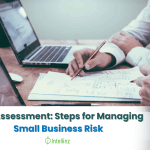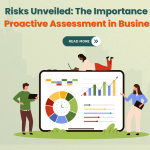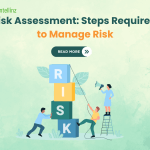In the never-ending fight against financial crime, the year 2024 offers an array of transformational trends that will redefine Anti-Money Laundering (AML) compliance.
As financial institutions attempt to stay one step ahead of complex criminal techniques, technology emerges as a vital ally, offering fresh solutions to detect and prevent criminal activities using the latest tech trends.
In this article, we will look at the tech trends that will shape due diligence in 2024.
Machine Learning and Artificial Intelligence (AI)
AI systems can quickly analyze contracts and identify potential risks and liabilities using natural language processing (NLP), allowing employees to spend more time on tasks that require human input.
AI also has tremendous predictive value, as computers can estimate M&A outcomes by analyzing previous deals and market trends.
Using AI and machine learning throughout the due diligence process will allow organizations to gain in-depth knowledge about a target asset, assisting them in determining an asset’s genuine value.
Cybersecurity Technology
Cybersecurity was once considered an afterthought. Private investors and their portfolio companies are now prioritizing cybersecurity.
As cyber-attacks become more common and sophisticated, some companies do cyber due diligence to identify potential vulnerabilities that may necessitate a modification in agreement conditions.
Failure to strengthen cyber defenses is extremely costly for firms. However, the harm goes beyond regulatory fines, the cost of correcting violations, and reputational damage—it can result in reduced M&A valuations.
Prioritize Environmental, Social, and Governance (ESG) Factors
Investors and regulators are more focused on sustainability. As a result, several corporations are including ESG factors in their merger and acquisition strategy. The logic is twofold: not only is it the moral and decent thing to do to consider ESG concerns, but they also drive value.
- Good Reputation– Companies that include ESG concerns into their operations and strategy tend to have higher reputations with stakeholders and consumers.
- Financial Performance – A rising amount of research demonstrates that organizations with strong ESG practices outperform their competitors financially in the long run.
- Compliance with Regulations- Governments around the world continue to tighten environmental, social, and corporate governance requirements. Companies that focus on integrating ESG are more likely to remain compliant, lowering the likelihood of post-acquisition legal problems.
Quantum Computing
Quantum computing is at the vanguard of technological progress, with the potential to transform computational capabilities.
Due diligence is becoming increasingly important when firms consider incorporating quantum computing into their operations in order to evaluate the possible effects, risks, and possibilities connected with this cutting-edge technology.
Conclusion
Due diligence is becoming increasingly necessary in today’s complex corporate world. As regulators, investors, and even the general public scrutinize organizations more closely, due diligence has become a non-negotiable procedure.
The advancement of technology, globalization of markets, and the rising possibility of fraud and cybersecurity breaches have all enhanced the necessity for detailed inspections.
Due diligence will likely remain critical in ensuring responsible and vigorous corporate growth in the future. Adopting these trends is thus not only a wise decision but also an ethical requirement.






